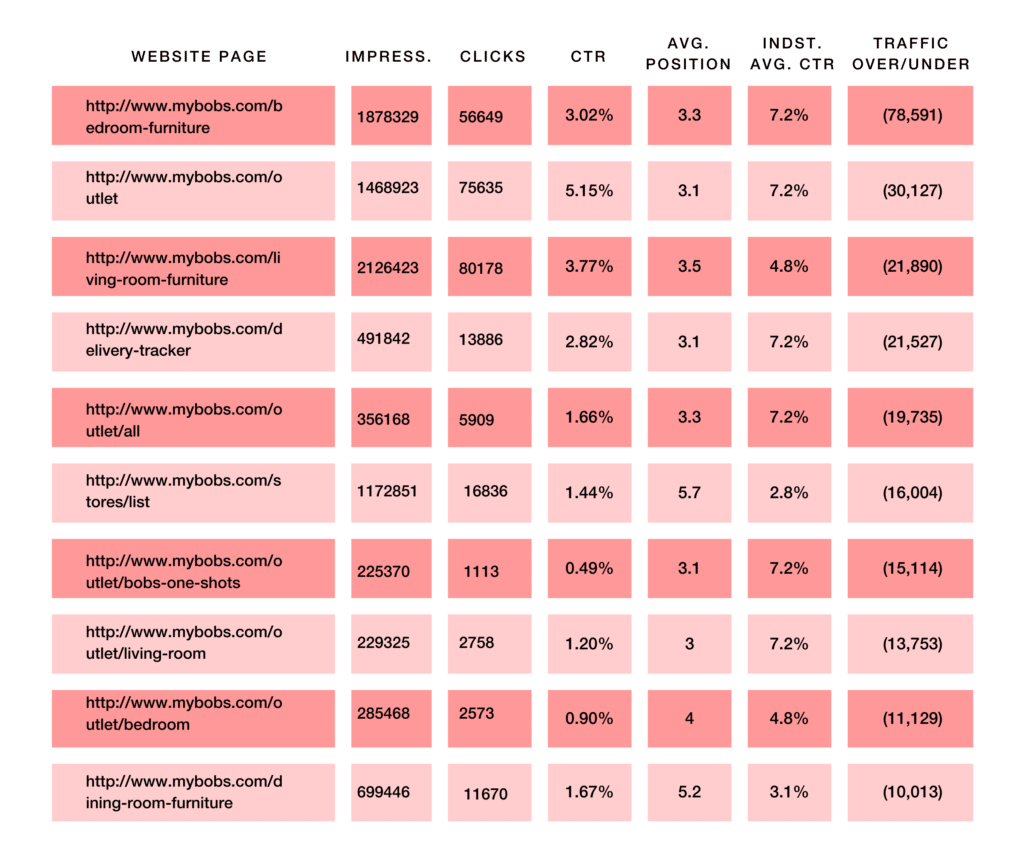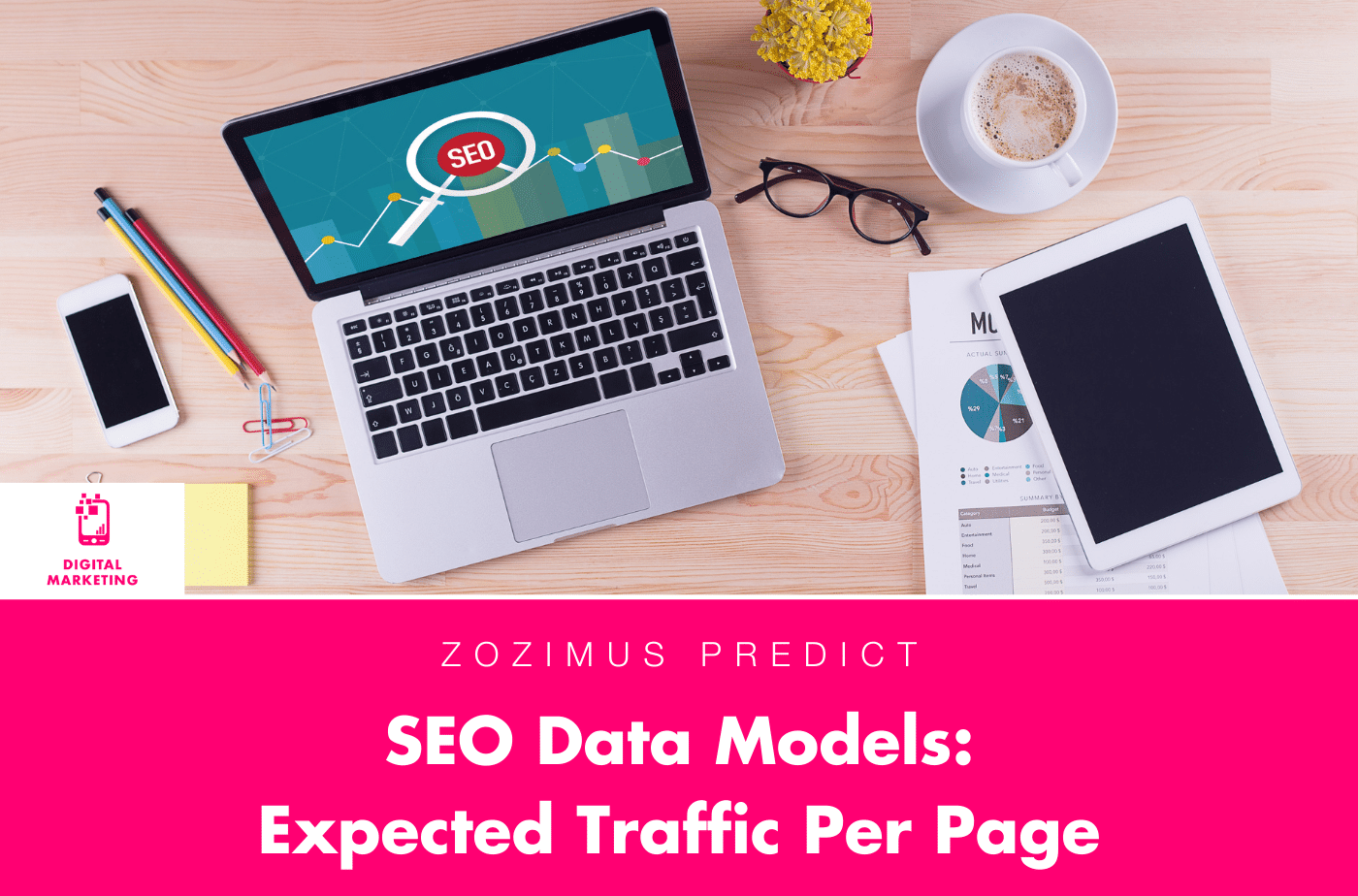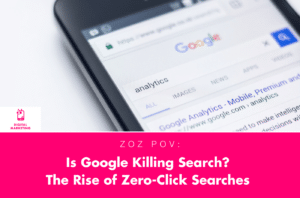We use SEO data models to help our SEO team understand how our client’s websites are performing in terms of organic search traffic. Our expected traffic per page model helps us determine how much traffic we should expect each page on a website to receive, based on a number of factors, including the page’s keywords, search intent, and click-through rate.
SEO Data Models
To create the expected traffic per page model, our data analytics team pulls in a variety of data sources, including:
- Google Search Console
- Historical CTR Data
- Keyword Type Data
Google search console data shows how many impressions and clicks each page on my website has received in search results. Historical CTR data shows what was the average CTR for each page on the website, compared to the historical average CTY for that position in the search engine results pages. Keyword type data are different types of keywords that have different CTR, this data tells me how difficult it is to rank for each of the keywords that my pages are targeting.
Once we have collected this data, our data analytics team uses it to create a model that predicts how much traffic each page on a website should receive.
We use the expected traffic per page model to track the performance of a website over time. If we see that a page is not receiving as much traffic as we expected, we use the model to identify the factors that are contributing to the low traffic. This information can then be used to make changes to the page to improve its performance in search results.
For example, if we see that a page is not receiving as much traffic as expected, we might look at the following factors:
- The page’s keywords: Are the keywords that the page is targeting too competitive? Are there other pages that are ranking higher for these keywords?
- The page’s content: Is its content relevant to the keywords it is targeting? Is the content well-written and informative?
- The page’s title tag and meta description: Do the title tag and meta description accurately reflect the page’s content?
Once we have identified the factors that are contributing to the low traffic, we can make changes to the page to improve its performance. For example, we might add additional keywords to the page’s title tag and meta description, or we might rewrite the page’s content to make it more relevant to the keywords that it is targeting.
By using data models to track the performance of our website, we can identify areas where we can make improvements to increase traffic. This helps us to improve the visibility of my website in search engines and attract more visitors.
How We Used Expected Traffic Per Page Data to Unlock Over $7.5M in Revenue
Working with Bob’s Furniture we were able to show with the expected traffic model that their website was getting 237,000 fewer organic visitors a month than expected based on their rankings.
We knew from our work with the client that each organic search engine visit was worth $2.64 in revenue, which meant that they were missing out on $628,000 in revenue per month! That is a run-rate of over $7.5M.

When we took a deeper dive into the pages that were underperforming, we saw that for the term “Bedroom Furniture” Google was pulling content from the top-ranking pages and displaying that as a snippet instead of the meta description tag.

That meant that Ashley Furniture and Wayfair had over 100 more characters in their snippet than Bob’s, increasing their CTR .
By adding optimized content to Bob’s bedroom furniture page, we were able to have Google use this content instead of the meta description tag within the SERPS, increasing website traffic and subsequently revenue.
Expected traffic per page data can be a powerful tool for improving your website’s SEO. By understanding how much traffic you should expect each page to receive, you can identify underperforming pages and make changes to improve their performance. This can lead to increased website traffic and revenue.
If you’re looking to improve your website’s SEO, we encourage you to use expected traffic per page data. It’s a powerful tool that can help you achieve your SEO goals.
To learn more about how Zozimus Predict can help you improve your website’s SEO, please contact us today.
BOSTON, MARS




